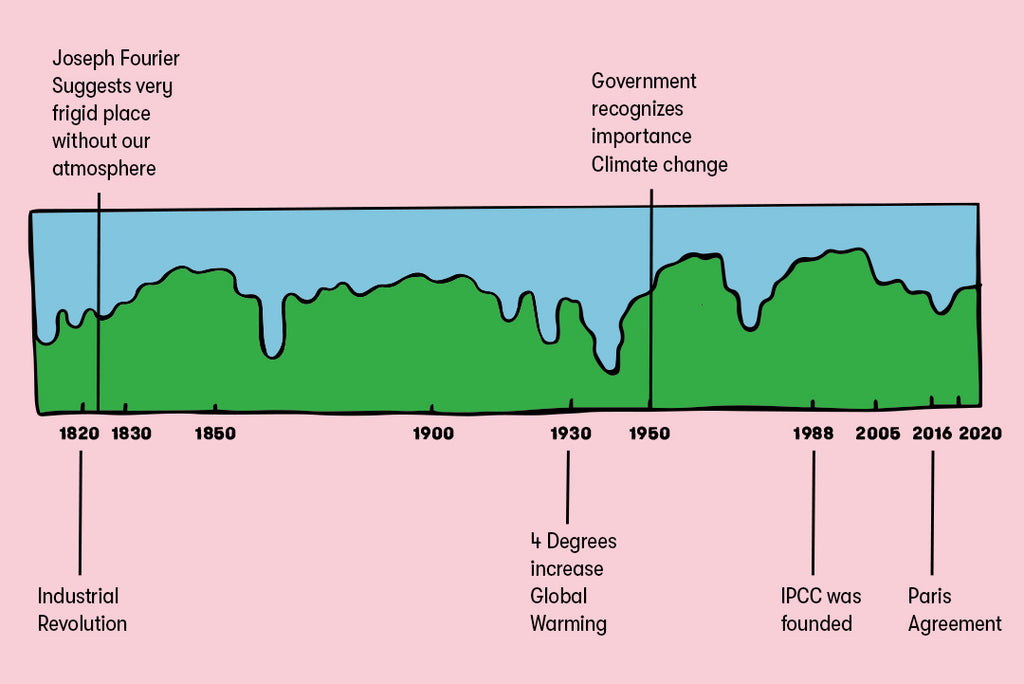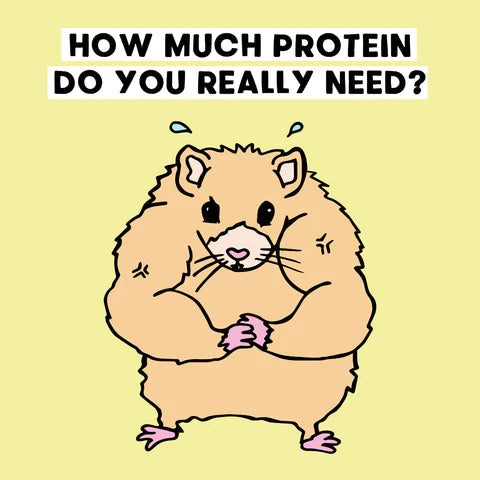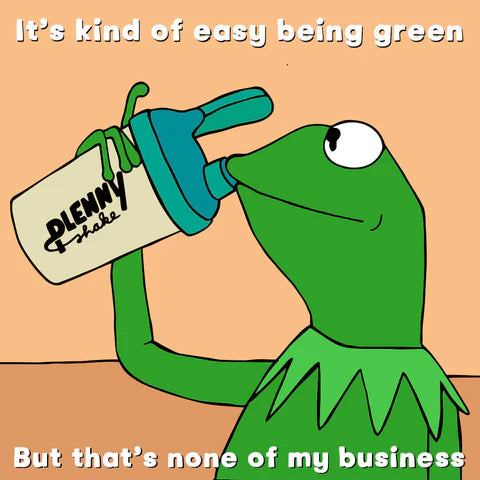Now that we’ve discussed the ins and outs of climate change, its devastating effects and how we can slow them down, it’s time to dive a little deeper into the subject. One article simply isn’t enough. Did sir David Attenborough stop making documentaries about our strange and beautiful planet after his first one in 1954? Of course not! He kept making one after another, hoping that one day his viewers would actually do something to protect it, instead of just breathlessly watching beautifully captured exotic places while hopelessly enchanted by his angelic voice explaining the mating behaviour of rare penguins.
Why, with all this terrible information available about climate change and its devastating effects, do we still not care enough to make a difference? Why has every geopolitical effort so far failed miserably? And is there a solution to the problem that will not end in the complete destruction of mankind? Find out in Climate Change Pt. II: why we don’t care.
History
Ignoring the signs of global warming is nothing new under the sun - mankind has a bit of a history of skepticism when it comes to climate change. The concern about carbon dioxide in our planet's atmosphere goes back as far as 1820, when the transition to new manufacturing techniques and the rapid exploitation of natural resources during the First Industrial Revolution changed how we humans relate to our environment forever. In 1824, French mathematician and physicist Joseph Fourier was the first known figure to suggest that, without our atmosphere, the Earth would be a somewhat chilly place (read: too cold to sustain life). Around this time the ‘greenhouse effect’ was discovered too. Just to jog our memories: that’s the increase in the atmospheric concentrations of greenhouse gases like carbon dioxide (CO. 2), methane (CH. 4), nitrous oxide (N. 2O), and ozone (O3) that are the cause of global warming (2).
Already in 1930, it was known that doubling the carbon dioxide emissions could lead to a 4 degrees Celsius increase in global warming. The mid-20th century was the first time in history worldwide governmental systems recognized the importance of their involvement in climate change. However, it wasn’t until 1988 that the Intergovernmental Panel on Climate Change (IPCC) was founded - now known as one of the most influential bodies (2). Ever since its foundation, IPCC has been issuing yearly climate change reports, confirming that our planet is indeed increasingly warming.
2016 marks the year of the Paris Agreement. 184 countries pledged to reduce carbon emissions produced by human activity (also known as anthropogenic emissions). Although since then, some stuff has happened. Like Trump getting the US out of the Agreement, for example. Or the world realizing that most countries are not going to be hitting their 2030 climate goals. And that essentially, if we fail to reach these goals, the financial losses will be astronomical (read: 2 billion USD per day) (3). Even worse: the damages to the environment will become irreversible. In 2020, the atmospheric CO2 reached almost 420 parts per million (PPM) for the first time in history, and CO2 emissions from burning fossil fuels have been recorded at 35 billion tonnes (4). Carbon dioxide contributes to the highest percentage of global greenhouse gas emissions, followed by methane and nitrous oxide (5).

Why we don’t care
When it comes to pro-environmental behaviour, one thing is for sure: we humans like to ignore complex and intangible problems. We have a tendency to disregard or invalidate problems that we don’t directly experience ourselves. Like climate change. The root of this issue goes back all the way to when we were hunters and gatherers. People’s minds evolved in a world where there was a tangible and visceral connection between action and consequence. For example, if a tribe would cut down all the trees in their area, they would be left with no wood. If they would hunt all the animals in their area, they would be left without any sources for meat, pelts, etc. The consequences of their actions were immediate. A major difference between modern life and the hunter-gatherer times is that today people rarely see, feel, touch, hear, or smell how their behaviours affect the environment. When buying food, we do not see how the food is grown, harvested, processed or transported; if a product is out of stock, it is only normal to assume that by the next day the supermarket will have restocked the shelves (6).
And then there are glaciers. It almost goes without saying that freshwater is essential to human survival, and it just so happens that about 90 percent of the world’s freshwater resources is located in Antarctica, in glaciers. Yet, because we don’t see the melting glaciers or the effects of it in our everyday lives, scientists are having a tough time convincing the world that this is a paramount problem that concerns us all.
Is there still hope?
It was Aristotle who said: “what is common to many, is taken the least care of.” We are part of a system that motivates us to increase our own gain without limit – in a world that is limited. No individual wants to sacrifice and reduce the size of their utility, because it represents only a tiny fraction of a problem. The same goes for companies and even governments, for that matter.
But many researchers and economists believe that the COVID-19 global pandemic is the perfect time for the world of business to reassess and restructure its policies along more sustainable lines. These times ask for strong government action, and the call for innovation seems louder than ever.
For many many years we have measured the ‘success’ of a country by looking at the GDP (Gross Domestic Product), but many economists argue that GDP is too narrow of a measure and should be replaced because it does not take into account the environmental impact of the economic growth (which, as we discussed earlier, can add up to billions of dollars per day in the long term) If, for example, there would be a large environmental disaster, a large amount of money will be spent on recovering from it, which - ironically - will cause a growth in GDP. So yeah, GDP should probably not be the principal goal of economic and public policy for governments to focus on… (11).

Many economists claim that more innovative business metrics and models could and should be used instead of the good ol’ GDP. An example of this is the Doughnut model. In this model, an economy is considered prosperous when all twelve social foundations are met without overshooting any of the nine ecological ceilings.
The concept of these ceilings, or planetary boundaries, was developed by Swedish professor Johan Rockström in order to quantify “the safe limits outside of which the Earth system cannot continue to function in a stable, Holocene-like state.” (12) Overshooting threatens the ability of systems to take a hit without collapsing. We actually wrote an article on the Earth's overshoot, which we recommend reading as well.
What can we do?
Changing the course of history is rarely a one-person job, and it will take some serious government action to really turn things around. Still, we the people can do our part on an individual level by creating awareness and by setting the right example. Since livestock products are among the most resource-intensive to produce, eating meat-free meals can make a big difference in the greenhouse gas emissions. So check out our nutritionally complete meals that not only have a shelf life of 12 months, but are also vegan.
The easiest way and perhaps the most important way to make an impact, however, is to voice your concerns. Talk to your friends, family, colleagues, or even to your local government officials. Let your concerns be heard and encourage others to take the issue seriously! Together we can make a difference.
Sources
- IPCC. 2014. Climate change 2014: synthesis report – summary for policy makers. Intergovernmental Panel on Climate Change.
- Le Treut, H., R. Somerville, U. Cubasch, Y. Ding, C. Mauritzen, A. Mokssit, T. Peterson and M. Prather, 2007: Historical Overview of Climate Change. In: Climate Change 2007: The Physical Science Basis. Contribution of Working Group I to the Fourth Assessment Report of the Intergovernmental Panel on Climate Change.
- Roberts, D. (2019, November 5). Vox. Retrieved from The Paris climate agreement is at risk of falling apart in the 2020s: https://www.vox.com/energy-and-environment/2019/11/5/20947289/paris-climate-agreement-2020s-breakdown-trump.
- Global Carbon Budget - Friedlingstein et al. (2019),Earth System Science Data, 11, 1783-1838, 2019, DOI: 10.5194/essd-11-1783-2019.
- IPCC 2018. Climate change 2018: special report – Global warming of 1.5°C. Summary for policymakers. Intergovernmental Panel on Climate Change.
- Griskevicius, V., Cantú, S. M., & van Vugt, M. 2012. The evolutionary bases for sustainable behavior: implications for marketing, policy and social entrepreneurship. Journal of Public Policy & Marketing, 31(1): 115-128.
- Pauleit, S., Zölch, T., Hansen, R., Randrup, T. B., & van den Bosch, C. K. (2017). Nature-based solutions and climate change–four shades of green. In Nature-Based Solutions to Climate Change Adaptation in Urban Areas (pp. 29-49). Springer, Cham.
- Conway, E. M., & Oreskes, N. (2014). The Collapse of Western Civilization: A View from the Future. Columbia University.
- Cohen, D. K. (2019, March 26). Sea levels are rising and we don’t have a Plan B. Retrieved from University of Utrecht: https://www.uu.nl/en/news/rising%20sea%20levels%20no%20Plan%20B
- Falham’s Street Mental Model, The Tragedy of the Commons, https://fs.blog/2011/08/the-tragedy-of-the-commons/
- S. Hill. 2020. A post-pandemic research agenda. LSE Impact Blog. Available here: https://blogs.lse.ac.uk/impactofsocialsciences/2020/06/30/a-post-pandemic-research-agenda/
- Rockström, J., Steffen, W., Noone, K. et al. A safe operating space for humanity. Nature 461, 472–475 (2009). https://doi.org/10.1038/461472a
- Davis, E. (2018). WWF Report Reveals Staggering Extent of Human Impact on Planet. Retrieved from WWF: https://www.worldwildlife.org/press-releases/wwf-report-reveals-staggering-extent-of-human-impact-on-planet

 Everything You Need In One Meal
Everything You Need In One Meal
 Stay Full For 3-5 Hours
Stay Full For 3-5 Hours




















 Product added to cart
Product added to cart





















